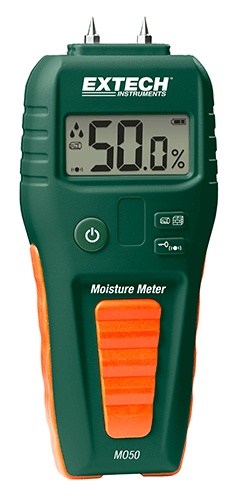How to Make Use Of a Moisture Meter to Discover Hidden Water Damages in Your Property
How to Make Use Of a Moisture Meter to Discover Hidden Water Damages in Your Property
Blog Article
The Ultimate Overview to Moisture Meters: A Comprehensive Summary and Exactly How They Can Save You Cash
In the world of structure maintenance, construction, and numerous sectors, the value of precisely measuring dampness levels can not be overstated. Moisture meters serve as important tools in detecting and checking moisture material in materials, assisting in stopping costly problems and making sure the quality of items. Comprehending the nuances of various sorts of dampness meters, their applications, and the prospective cost-saving benefits they use can be a game-changer for professionals and companies alike. Discovering exactly how these devices can not just streamline procedures but additionally add to economic savings is a trip worth embarking on.
Kinds of Moisture Meters
One usual kind is the pin-type moisture meter, which determines the electric resistance in between 2 pins put into a material. Pinless wetness meters, on the various other hand, usage electro-magnetic sensing unit plates to scan a bigger area without causing damage to the material's surface.
Infrared moisture meters gauge the thermal buildings of a product to identify its moisture material non-invasively, making them useful for applications where pin or pinless meters may not be appropriate. Understanding the different types of dampness meters readily available can help industries choose the most ideal device for their particular moisture dimension requirements.

Advantages of Utilizing Moisture Meters

In addition, using wetness meters can cause raised power effectiveness. By identifying areas with high wetness degrees, such as leakages or inadequate insulation, changes can be made to boost power conservation and reduce utility costs. In agricultural settings, wetness meters play a vital duty in maximizing plant returns by making it possible for farmers to monitor dirt dampness degrees and make educated irrigation decisions. Generally, the advantages of utilizing wetness meters cover throughout different markets, offering economical options and promoting better high quality control practices.
How to Select the Right Moisture Meter
Choosing the suitable moisture meter entails thinking about essential factors such as product compatibility, measurement range, and calibration precision. When selecting a moisture meter, it's vital to make sure that the meter is suitable for the specific product you will be screening. Different products have varying electric buildings that can impact moisture readings, so picking a meter created for your material is vital for accurate outcomes. Additionally, take into consideration the measurement variety of the moisture meter. Make sure that the meter can spot dampness levels within the variety needed for your applications. Calibration accuracy is an additional crucial variable to bear in mind (Moisture Meter). Choose for a dampness meter with trusted calibration to guarantee constant and exact readings. Some meters may call for routine calibration modifications, so recognizing the calibration procedure is necessary. By meticulously evaluating these aspects, you can pick a moisture meter that satisfies he has a good point your requirements and gives accurate wetness dimensions for your tasks.
Correct Techniques for Moisture Meter Usage
To guarantee exact wetness readings and make the most of the performance of a wetness meter, employing correct methods is essential. When utilizing a pin-type moisture meter, resource put the pins or probes into the product being evaluated till they make full call. By following these correct techniques, customers can rely on their wetness meter to provide credible dampness levels, assisting in avoiding pricey damage or making sure top quality in different applications.

Price Cost Savings Via Moisture Meter Applications
How can the calculated application of dampness meters lead to significant cost savings across different markets? In the farming sector, dampness meters help in determining the optimal time for harvesting crops, avoiding over-drying or excess wetness that can affect the final product's high quality.

In addition, in the food processing market, wetness meters are necessary for monitoring product top quality and making sure compliance with security regulations. By precisely measuring dampness content in food, makers can protect against perishing, preserve freshness, and lower waste, leading to substantial price financial this savings. In general, the critical application of moisture meters is a useful investment that can cause substantial expense decreases and enhanced efficiency across different industries.
Conclusion
To conclude, wetness meters are important tools for detecting and gauging moisture degrees in various products. By using the best dampness meter and complying with proper strategies, individuals can effectively protect against expensive damages triggered by excess wetness. Purchasing a high quality moisture meter can bring about significant price savings in the lengthy run by determining possible problems beforehand and allowing punctual remediation. Inevitably, moisture meters are crucial instruments for keeping the integrity and durability of frameworks and materials.
Wetness meters offer as indispensable tools in finding and monitoring moisture content in materials, helping in stopping pricey problems and ensuring the quality of products. Infrared wetness meters determine the thermal properties of a material to identify its wetness content non-invasively, making them helpful for applications where pin or pinless meters may not be appropriate.Wetness meters provide vital benefits in properly analyzing and checking dampness degrees in varied products and atmospheres. In agricultural settings, moisture meters play an essential role in optimizing crop returns by making it possible for farmers to check dirt wetness levels and make informed watering choices.In final thought, wetness meters are valuable tools for detecting and gauging wetness degrees in different materials.
Report this page